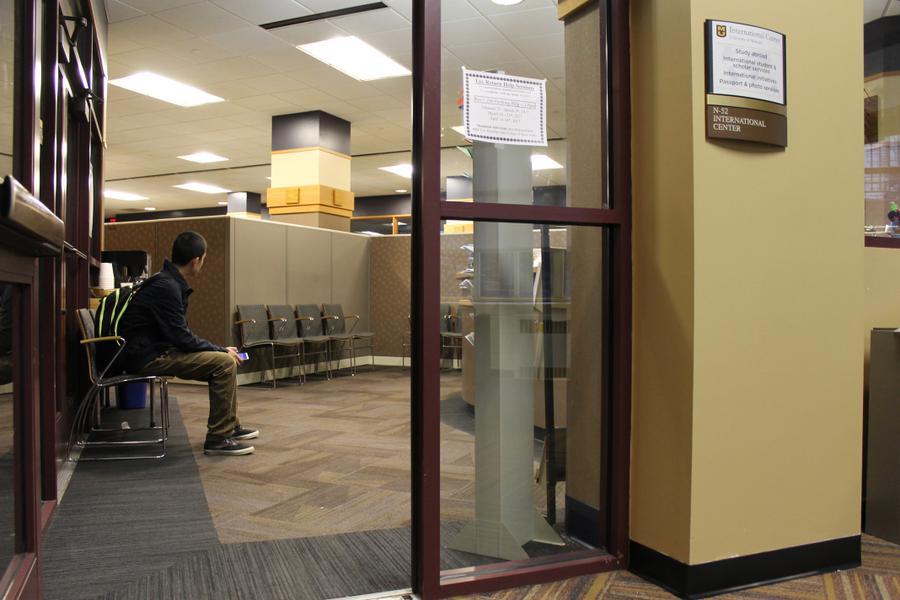Approximately 80 students and scholars affected by President Donald Trump’s recent executive order to implement a travel ban attended a meeting in Jesse Wrench Auditorium on Tuesday. The International Center and university administrators worked together to explain the executive order and answer questions individuals had.
The meeting was closed to media in the effort to make those attending comfortable about sharing their personal stories. As of fall 2016, 138 total students hold citizenship across the seven countries affected by Trump’s executive order, according to the Fall 2016 Enrollment Summary Report.
Questions asked ranged from legal questions about the U.S. immigration system and visa statuses to questions about resources available at MU, university spokesman Christian Basi said.
“There are a lot of questions out there,” Basi said. “We know that, and so one of the things we did, and the International Center made sure was happening, was that there were representatives from a lot of different offices.”
Representatives included those from the Counseling Center, the Provost Office, the Office of Student Affairs, deans from various schools and colleges and an immigration lawyer.
“At the end of the session the entire audience applauded [Director of the International Center] Jim Scott and his team,” Basi said. “So, I think that they really appreciated the effort that, first of all, has already happened, as well as the effort that it took to go through and put this together.”
Basi said the university is here to support its students in any way it can.
“The students are very valued members of our community, and the international students bring a rich diversity to the campus,” he said.
Civil engineering Ph.D. candidate Ahmed Abdaljabbar, 38, who is from Iraq, said he and his family plan to stay in the U.S. for now. He said they have legal visas.
“We feel very supported and welcomed from the MU community and from the Columbia community,” Abdaljabbar said. “We have the support from our chancellor, from our dean, from the College of Engineering, from the International Center.”
Abdaljabbar came to the U.S. in 2013 as a sponsored student from Iraq. He has one year left in his research.
“I am not concerned,” he said. “After what I heard, we will still maintain our status and I will keep doing what I am doing right now. I still have one year, and I hope I can finish my research.”
_Edited by Emily Gallion | [email protected]_








